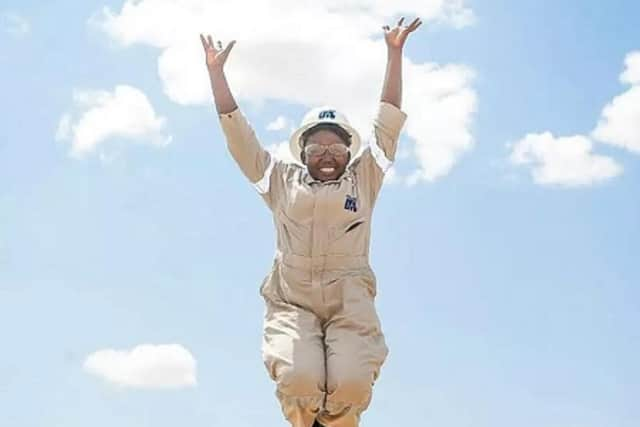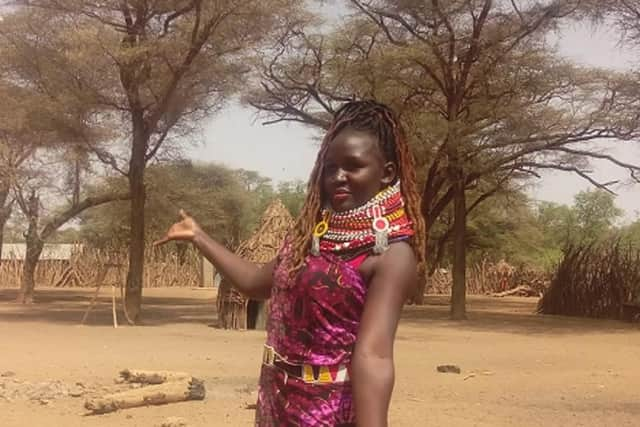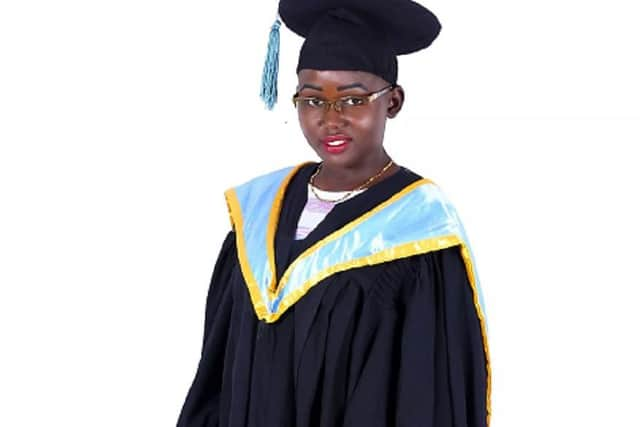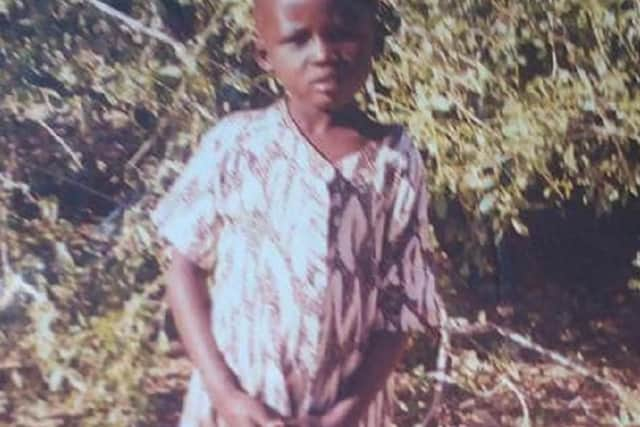Girl who grew up carrying buckets from a well becomes PhD expert in water supply thanks to Milton Keynes charity
and live on Freeview channel 276
A young woman who spent her childhood carrying heavy buckets of water from a well and milking goats is studying for a PhD to help solve her community's water problems.
Pauline Lokidor was sponsored as a child through a scheme run by Milton Keynes-based global charity, World Vision.
Advertisement
Advertisement
Against all odds, she secured a place in the UK, at Cranfield University, to study water management. She's now studying for a PhD at Coventry uni and hopes to return to her home village in Turkana to find sustainable solutions to water scarcity problems.


Her story is especially topical right now as world leaders meet in Cornwall for the G7, where climate change and its impact on the global poor is at the centre of the agenda.
Pauline said: "I was well-trained to be a Turkana wife: I can make traditional huts and milk a goat, cow and camel... I feel lucky and blessed in equal measure, to come all the way from a Morulem village to England in pursuit of my academic dreams."
She is from a nomadic family of six siblings in one of the driest regions of Kenya. It has devastating droughts and to make matters worse, the nomadic communities are marginalised, with a poor standard of living, high illiteracy levels and limited opportunities.
Advertisement
Advertisement
"The whole area suffers from water scarcity and insecurity issues that have cost many lives, including my own close family and friends," she said. "The main water sources in places like my village are handpumps and shallow wells. The water quality breaches World Health Organisation Standards of Potable water. But options are limited so people use the water for themselves and their livestock, which increases their susceptibility to waterborne diseases."


Pauline's time as a child was split between school, taking livestock to the grazing field and fetching water from one handpump located several kilometres from the village at least two or three times a day.
"Schools are understaffed and underequipped. Children have to walk more than 2km to and from school on foot. It’s exhausting and discourages many from starting and completing primary level," she said,
"Nomadism is the dominant culture. Men are empowered with all the decision-making while women are voiceless and obliged to be submissive. Girls are denied rights to education as it’s not considered important. In their early teens, they are subjected to cruel cultural practices in the name of training to be housewives.
Advertisement
Advertisement
"While the situation is gradually shifting, as communities are more familiar with gender equality, real change will take time."


Raised as the oldest girl in a nomadic family, Pauline did all the house chores and herding during her early childhood.
"My teacher used to flog me for missing classes on Fridays until I struck a deal. I fetched water for her, or sometimes stole a cup of camel’s milk, to replace flogging. It worked.
"My childhood was turbulent but I learnt many hard – and useful – lessons. I learned hard work, resilience and the benefits of multi-tasking. I always remember I’m a girl from a nomadic community: I have to work extra hard in my studies to prove my worth."
Advertisement
Advertisement
Pauline still has her first photograph World Vision took for her child sponsorship when she was four years old, and she will always be grateful to her sponsors.


"Thank you for playing a pivotal part in my life,” she said.
The World Vision Child Sponsorship scheme's mission was to encourage and sustain children in schools.
"Child Sponsorship relieved a great burden from many parents. I got free school uniforms, books and mosquito nets throughout primary," said Pauline,
Advertisement
Advertisement
"I got asthma and could not fit in the community again, as it was considered a curse. My parents could not afford the treatment. Thankfully, World Vision Kenya facilitated my medical treatment from 2003 to 2007.
"That same year, we lost all our livestock and became very poor. This meant going to secondary school and continuing to higher education seemed remote.
"I was bright and hardworking but, after the loss of our animals, dropping out was imminent. When the national examination results were released, I emerged among the top performers and secured admission into one of the top prestigious schools in the country."
But hardly able to afford one meal a day, Pauline's family did not have the money to send her,.
Advertisement
Advertisement
"Determined, I managed to secure local bursary funding. Constituency Development Funds (CDF) and local NGOs, such as World Vision, also came to my aid. I wanted to excel in school and gain government admission to university – so my parents wouldn’t have to struggle with fees," she said,
"At the boarding school, my upkeep was solely reliant on friends. During visiting days, while other students were excited to receive good food and shopping, my expectations were low. Mum came to see me with sometimes three litres of fermented milk, which I appreciate even now. After all, this is what they had.
"However, I could trade a cup of fermented milk for a slice of bread, fruit or anything else that friends got from their parents! My best friends donated some of the shopping to me as they understood my situation. Reflecting, I don’t see any other way I'd have made it without World Vision and CDF support. I am forever grateful."
Pauline graduated with a BSc in Hydrology and Water Resources Management at South Eastern Kenya University.
Advertisement
Advertisement
"I chose a water-related course as I had my village’s water situation on my mind, particularly the women and children who are the most affected by the crisis. Perhaps I could even save the future life of a girl or woman from this daunting struggle. I wanted to change the narrative in Turkana in my small way," she said.
Pauline's thirst for more knowledge then led her to Cranfield University, where she completed her MSc in water management.
"While doing my Masters, funded by Marshal Papworth, I also worked part-time to support my siblings and family. I carry all the responsibilities for providing food for my elderly parents, my brother, who lives with epilepsy, my younger brother, who is now enrolled on a diploma course, and two sisters," she said.
Currently Pauline is doing her PhD research on flood risk management at Coventry University.
Advertisement
Advertisement
"I believe there is a bright future ahead, not only for me but for my community and country. I have bigger dreams of tapping the potential in Turkana, collaborating with the Turkana County Government and existing NGOs who are already doing tremendous work in the region, in terms of increasing water availability and building sustainable solutions to the water problem," she said.
"I would like to be an inspiration and motivation to all the girls from nomadic communities to pursue their dreams. The struggle is real. Obstacles are temporary, but how to overcome them all depends on you. Your strength is within you.
"I would advise young girls in my nomadic communities to never give up no matter the challenges they go through. There is always a light at the end of the tunnel."
You can find out more about the World Vision child sponsorship scheme here.